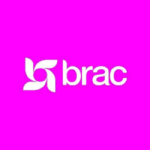Overview
Job Title: Database/Bi Developer
Job location: Dar es Salaam.
Deadline for applications: August 15, 2024.
Commencement date (Start date): 1 October 2024.
Background:
The five-year program at the University of California, San Francisco (UCSF)
Cooperative Agreement with the U.S. Centers for Disease Control and Prevention-Tanzania (CDC-Tanzania) to supply the Ministry of Health, Community Development, Gender, Elderly and Children (MOHCDGEC) with strategic information and technical support for health information systems (HIS) to the US President’s Emergency Plan for AIDS Relief (PEPFAR) and its implementing partners (IPs). Through Global Programs, an international NGO with which we are linked, we are hiring someone to fill the position of database/BI developer.
This is a full-time post with a September 2025 start date and a potential extension if funding is available. It is anticipated that the role will begin on October 1, 2024.
The Main duties and Responsibilities:
The Database/BI Developer will assist UCSF with its data needs by creating and managing databases, reports, queries, and other tools to support its projects and programs, all under the direction of the HIS lead. It is expected of the database/BI developer to adhere to database design principles while creating databases that satisfy project-specific requirements.
For certain applications, the developer will need to import data—sometimes with data transformation—from pre-existing data sources into a database that is controlled by UCSF. As a result, mastery of scripting languages and SQL is essential. Utilizing data transformation and analysis to visualize project data on dashboards is a crucial responsibility for the BI developer.
The Database/BI Developer is an essential member of the Global Programs Tanzania office. They may be expected to meet with funders, government officials, and stakeholders to gather requirements.
The Specific responsibilities include:
The current leader ( incumbent) will:
- Create a conceptual architecture for a database that will eventually house substantial datasets pertaining to health.
- Create, design, and execute ETL systems to continuously load different databases into a master database for analysis.
- Create effective views, indexed views, queries, and other database objects to make reporting, analysis, and querying easier.
- Make recommendations when necessary, and then create a data warehouse.
- Create and implement PowerBI and SQL Server Reporting Services dashboards, charts, and reports.
- To satisfy the needs for system storage, further improve the physical design.
- Uphold data standards, such as following the Data Protection Act.
- Compose documentation for databases that includes methods, data standards, and definitions for the data dictionary (metadata).
- Verify that the processes for data archiving and storage are operating as intended.
- Maintain constant communication with the technical, operational, and applications staff to guarantee the security and integrity of the database.
- To ensure that they are functional, commission, install, and modify new and existing programs.
- Anything further that management directs that falls within the purview of the position.
Experience, aptitude, and minimal prerequisites:
- A suitable degree in information systems, computer science, or software engineering with a concentration in database development or business intelligence and three years of experience, or at least six years of experience in backend development, database development, or business intelligence that can be verified. An extra benefit is having a master’s degree in information systems management, health informatics, software engineering, or computer science.
- A minimum of three years of verifiable expertise with one DBMS (PostgreSQL or SQL Server).
proven database and SQL development expertise, including the ability to create intricate SQL queries. - Shown proficiency with business intelligence solutions, such as Power BI and Tableau bi.
- Being certified in a well-known DBMS is thought to be a big benefit.
- Possessing knowledge of one or more of the following areas is advantageous:
– Python software development.
– Working in the medical field, particularly in services pertaining to HIV.
– Statistics and/or epidemiology (Bio).
– Observation and Assessment / monitoring and evaluation.
- Measurable expertise integrating enterprise applications.
- Capacity to function well in a group.
- Proficient in both spoken and written Swahili and English.
Additional abilities/skills needed:
- Outstanding analytical and critical thinking abilities.
- Outstanding communication skills, both written and oral.
- The capacity to manage multiple jobs under strict deadlines and work autonomously.
- Together with training other employees in the creation, development, and upkeep of databases and dashboards, the incumbent must be open to communicating and working cooperatively with them.
Mode of Application:
Every applicant must respond to each selection criterion listed in the above minimal standards with particulars and thorough justifications for each item.
The following must be included in all applications:
- A recent resume with at least two referees’ names and phone numbers.
- Copies of one’s professional and academic credentials.
Applications and accompanying materials should be emailed to info.tanzania@ucglobalprograms.org and received by August 15, 2024, is the deadline.
NOTE: Contact will only be extended to short-listed applicants.
To apply for this job email your details to info.tanzania@ucglobalprograms.org.


